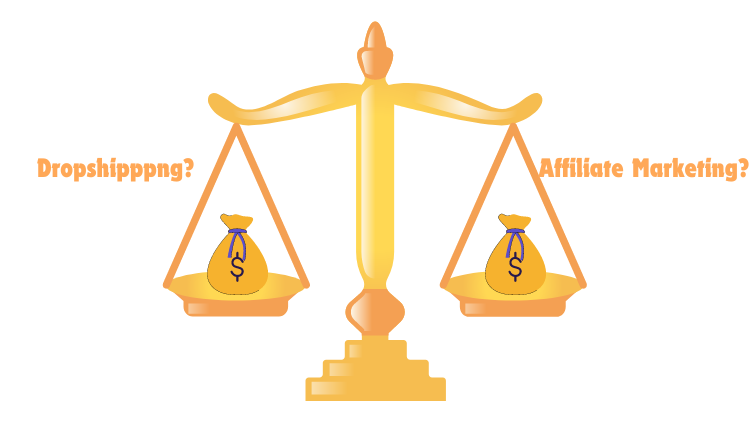Think of dropshipping as a retail method where I don’t keep products in stock. Instead, when I sell a product, I purchase it from a third party and have it shipped directly to you, the customer. I never see or handle the product myself, which streamfightlines the sales process and minimizes the risk of overstocking.
Online retail space has embraced dropshipping, making it increasingly popular among entrepreneurs looking to establish an e-commerce business. This model predominantly operates through online storefronts, where sellers list products without owning any inventory. When an order is placed, the seller purchases the item from a supplier who then ships it straight to the end customer.
Dropshippers function as intermediaries in the supply chain. They’re the liaison between suppliers and customers, handling the sales and marketing side of the business while leaving the logistics — storage, packaging, and shipping — to the supplier. This unique position allows dropshippers to focus their efforts on building the business and enhancing customer service.
Exploring Affiliate Marketing: Passive Income Stream Defined

I turn my attention now to unraveling the dynamics of affiliate marketing. Unlike dropshipping, affiliate marketing doesn’t require you to handle products directly. In fact, it is a performance-based marketing strategy where you earn commissions for promoting someone else’s products or services on your platform. Picture this: you find a product you like, you promote it to others, and you earn a piece of the profit for each sale that you make.
It’s crucial to grasp the affiliate marketing ecosystem to appreciate its full potential. As an affiliate, you’ll interact with merchants or product creators, affiliate networks, and the audience you’re catering to. Merchants provide the products, affiliate networks act as intermediaries handling the transactions, and your audience is where you direct your marketing efforts.
The earning process is straightforward. After signing up for an affiliate program, you’ll receive a unique affiliate link. Your job is to share this link through your blog, social media, or email newsletters. When someone clicks on your link and makes a purchase, it’s registered as a sale attributed to you, and you receive a commission. It’s like being a virtual salesperson, but with the freedom to sell just about anywhere in the world with internet access.
Weighing the Pros and Cons: Dropshipping Vs. Affiliate Marketing
Before I plunge into the direct comparison, it’s clear that both dropshipping and affiliate marketing have carved out their own niches in the eCommerce landscape. Choosing between them isn’t as straightforward as picking the higher profit margin method; it involves considering your aptitude, resources, and personal business goals.
Dropshipping’s primary appeal lies in not having to manage inventory or handle products directly. As an entrepreneur, you display products in your online store, and when a customer makes a purchase, the order is sent to the supplier who then ships the item directly to the customer’s door. However, this convenience comes with its own set of challenges. Margins can be thin, competition fierce, and you have to ensure the logistics handled by third parties meet customer expectations, which is itself a significant responsibility.
Another factor to consider with dropshipping is the potential for customer service issues. Since you’re not in charge of the stock or shipping process, any delays or problems fall back on you to resolve. The control you relinquish over the customer experience can sometimes lead to brand reputation challenges.
Affiliate marketing operates on a different premise. You promote other people’s products and earn a commission for each sale or lead you generate. There’s no need to worry about inventory or fulfillment, which naturally reduces overhead. This model thrives on your ability to market effectively and build an audience that trusts your recommendations.
One of the cons, however, includes the dependency on the affiliate programs. Changes in commission structure or program terms can affect your income. Moreover, you have about as much control over the product quality and service as in dropshipping – which is to say, not much.
Despite these caveats, in affiliate marketing you’re spared from the rigors of customer service related to product issues. Your primary role centers around driving traffic and converting leads, steering clear of logistics and post-purchase interactions.
In the next section, I’ll delve into WHY affiliate marketing can often be a superior choice for digital entrepreneurs.
Affiliate Marketing Advantages: Why It Wins for Entrepreneurs

If you’re exploring options for an online business, affiliate marketing often stands out for several good reasons. While both dropshipping and affiliate Demo.marketing have their place in the digital economy, here’s why many are tipping the scales in favor of affiliate marketing.
Affiliate marketing is celebrated for its relatively LOW START-UP COSTS. Unlike dropshipping, there is no need to purchase inventory or manage shipping logistics. Your primary investment is in building and maintaining your website or platform to promote products.
What’s more, you have access to a virtually UNLIMITED RANGE OF PRODUCTS. As an affiliate, you’re not tied to a single supplier or niche. You can promote products from multiple affiliates, which diversifies your income streams and increases resilience against market fluctuations.
The beauty of affiliate marketing lies in its POTENTIAL FOR SCALABLE PASSIVE INCOME. With the right content strategy, your affiliate links can generate a steady income well after the initial effort. It’s the epitomization of ‘make money while you sleep’.
For new marketers, affiliate marketing presents an EASE OF ENTRY. There’s no requirement for technical know-how of managing stock or dealing with customer service related to product issues. Your focus is on crafting compelling content and driving traffic to your affiliate links.
Success stories pepper the landscape of affiliate marketing – real people who have built lucrative businesses. These testimonies provide not just inspiration but also concrete evidence of what’s achievable with dedication and the right approach.
Affiliate Marketing Essentials: Strategies for Success

Building a successful affiliate marketing business is about strategy. It isn’t just about choosing a product and waiting for the commissions to roll in. You need to develop a storage approach that aligns with your goals.
Content marketing serves as the backbone of many successful affiliate campaigns. Creating valuable content that resonates with your audience is crucial for engagement. The content should solve problems, answer questions, and guide users toward products that can genuinely help them.
Search engine optimization, or SEO, is paramount to ensure your content reaches as many interested eyeballs as possible. Focus on the fundamentals, like keyword research, quality content, and getting inbound links from reputable sites, to help your posts rank well in search results.
Don’t underestimate the power of social media and email marketing. These tools can significantly amplify your affiliate reach. Use social channels to share your content and interact with your audience, while email newsletters can bring personalized offers straight to your readers’ inboxes.
Mistakes are inevitable in any business, especially when you’re just starting out. However, you can minimize them by learning from others. Avoid some of the most common pitfalls, such as choosing the wrong products, neglecting your audience’s needs, and being inconsistent with content creation.
Joining Forces with Wealthy Affiliate: A Path to Affiliate Mastery

The conversation so far has highlighted the relative merits of dropshipping and affiliate marketing, with a focus on the latter’s advantages. Now, I turn my attention to Wealthy Affiliate, a company that has carved out a reputation for helping individuals like you turn their affiliate marketing ambitions into achievable goals.
Founded over a decade ago, Wealthy Affiliate has evolved into a robust platform offering comprehensive training programs suited for both novices and seasoned marketers. What sets this platform apart is its blend of education, tool access, and community support, all structured to guide you towards success.
TRAINING is the backbone of Wealthy Affiliate. Starting with the basics and progressing to advanced techniques, the coursework is designed to be both accessible and challenging, ensuring continuous growth. Tools such as keyword research software are included, making it easier to pinpoint profitable niches and optimize content for search engines.
Another cornerstone of the Wealthy Affiliate experience is COMMUNITY. By joining, you gain access to a network of like-minded individuals, each with varying levels of expertise. From day one, you’re not alone. You have a network to lean on, ready to offer advice, feedback, and encouragement as you build and refine your affiliate marketing business.
Success stories abound within the Wealthy Affiliate community, serving as a testament to the platform’s efficacy. These narratives not only inspire but also provide concrete examples of what strategies have worked—and what pitfalls to avoid.
If you’re ready to take a step towards financial independence through affiliate marketing, Wealthy Affiliate offers a clear pathway replete with education, tools, and community support. It’s a place to learn, to grow, and most importantly, to turn effort into income. To get started, simply visit their website, where you can access a variety of resources and connect with the community right away.
Sign Up For A Free Account Today! No Credit Card Required!










